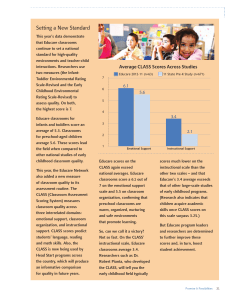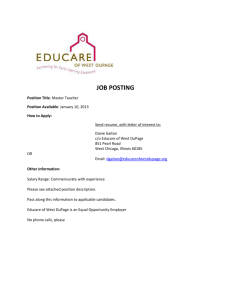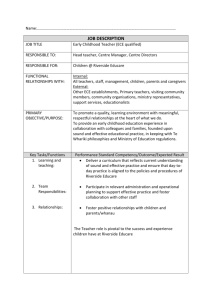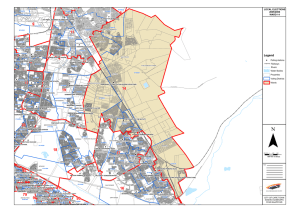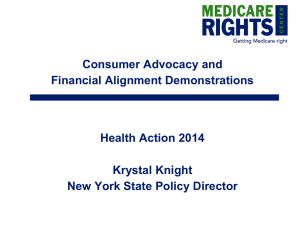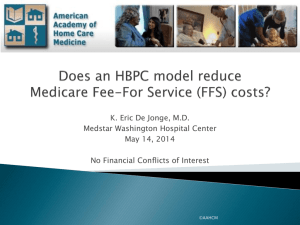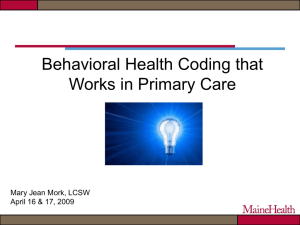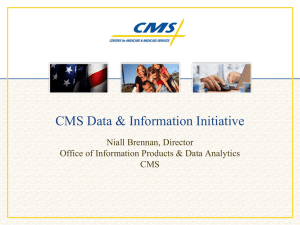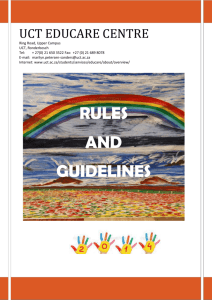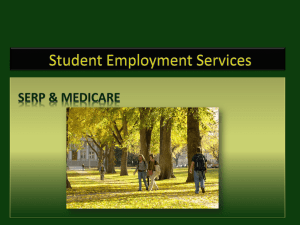Integrating Health Education with Values Education
advertisement
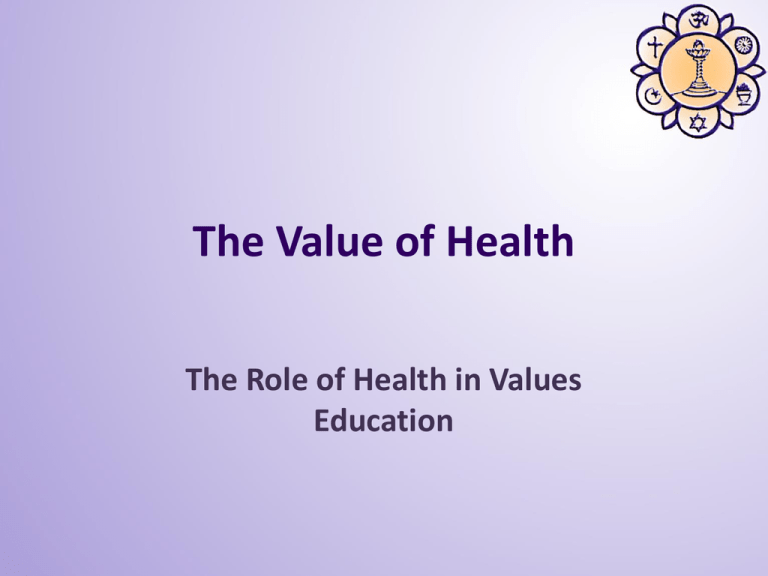
The Value of Health The Role of Health in Values Education Bend – the body Mend – the senses Sri Sathya Sai Baba End – the mind How does this translate? Medicare is bending the body: • Physically • Physiologically • Mentally & Emotionally Educare is mending the Senses Sociocare is a mixture of these two • These lead to the goal of spirituality which is: END THE MIND The Three Fields of Sai Spiritual Endeavour Educare Education as social conscience Education as health as the educational HealthcareSociety as education field Health care as social service Social needs determine health care Medicare Sociocare Education as health Healthcare as education • The health of society is intimately linked with the educational level of the people 1, 2 • The educational experience is reflected, not only in the physical health, but the emotional and psychological health 2 • Education reflects in adult behaviour, impacting on health 3 • Healthcare education in school can positively affect adult health 4 • These correlations are critical when we look at the role values education can make to societal health Health care as social service Social needs determine health care Health Care & Social Service are simply God gifting God back to God “You have no reason to feel proud when you are able to help another, for your skill or wealth or strength or courage or official position that gave you the chance to serve was the gift of God, whether you recognize it or not. You are only offering this God's gift to another God's gift, namely the poor, the illiterate, the weak, the diseased, the grieving, the broken-hearted, who seek your help.” Baba Education as social conscience Society as the educational field “Health and environmental education seek to address the living conditions and lifestyle choices that lead to health and environmental problems by motivating and teaching students how to participate in the reconstruction of themselves and society in accordance with ecological values and the democratic values of social and economic justice.” Fien 5 Programme Description in the form of Programme Logic for a Health Promotion Programme in South Auckland School SITUATION - Children arrive at school with health conditions relating to malnourishment - Socioeconomic factors impact on health status, which is to nutrition - This affects children’s participation in school life - Parents rely on school for their social support INPUTS - - - Naturopathic Students as nutritional health workers Written resources Time: College Academic, Administrative and School staff Travel Cooking facilities and materials OUTPUTS - - - - Numbers in programme Numbers of days programme delivered Numbers of students involved Student completion rates Students formative & summative assessments OUTCOMES Short Term - Feeling someone cares Social interaction Intermediate Term - Better attendance because of health Improvement in nutritional inputs Improvement in family’s nutrition Longer Term - - Lessening of infections Increased academic achievement Improvement in all health parameters Values Inherent in the Health for Life Programme • Engendering compassion • Feeling of unity and understanding of the situation of others • Creating a sense of family • Wanting others to have the same health and educational opportunities as we have (creates a sense of upliftment) • A sense of sacrifice lets us forget about ourselves Workshop Exercise -1 In three groups, using the butcher paper and pens, relate the aspects of educare, medicare and sociocare, using the values • Group 1 will relate educare and medicare • Group 2 will relate educare and sociocare • Group 3 will relate medicare and sociocare Using the values as the determinants of the relationships Workshop Exercise -2 • Using those relationships determine at least three actions that could be used to enhance those relationships • Then design a programme (in brief) that could be applied in the values educational environment that meets the need of the relationships, in terms of: Needs met Goals & outcomes Resources required How the programme puts the values in action References 1. 2. 3. 4. 5. Wilkinson RG, Marmot MG. Social determinants of health: the solid facts 2ed. Copenhagen: World Health Organisation; 2003. Power C, Stansfeld SA, Matthews S, Manor O, Hope S. Childhood and adulthood risk factors for socio-economic differentials in psychological distress: evidence from the 1958 British birth cohort. Social Science & Medicine. 2002;55(11):1989-2004. Koivusilta L, Arja R, Andres V. Health behaviours and health in adolescence as predictors of educational level in adulthood: a follow-up study from Finland. Social Science & Medicine. 2003;57(4):577-93. Lakin L, Littledyke M. Health promoting schools: integrated practices to develop critical thinking and healthy lifestyles through farming, growing and healthy eating. International Journal of Consumer Studies. 2008;32(3):253-9. Fien J. Learning to care: a focus for values in health and environmental education. Health Education Research. 1997 December 1, 1997;12(4):437-47.
